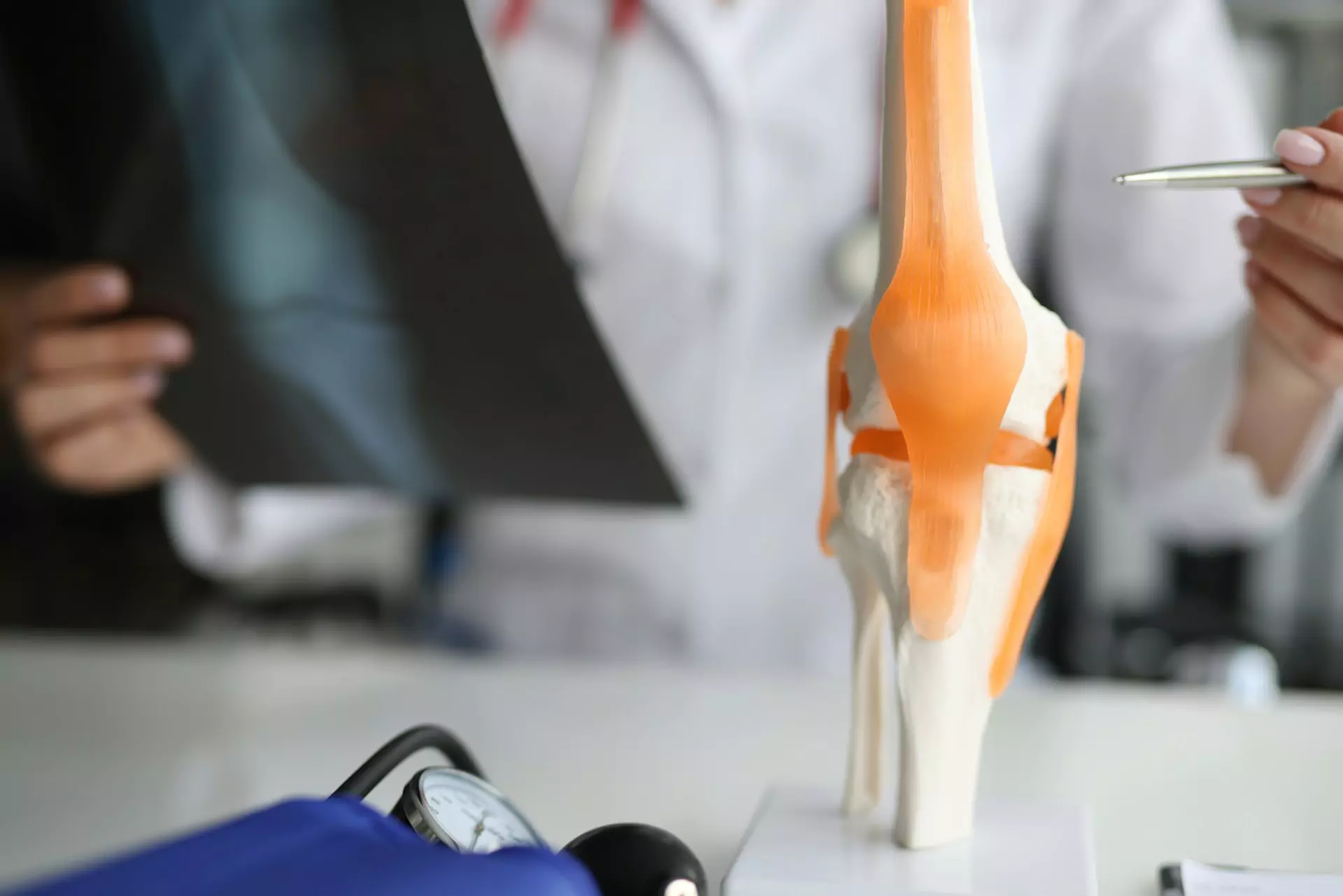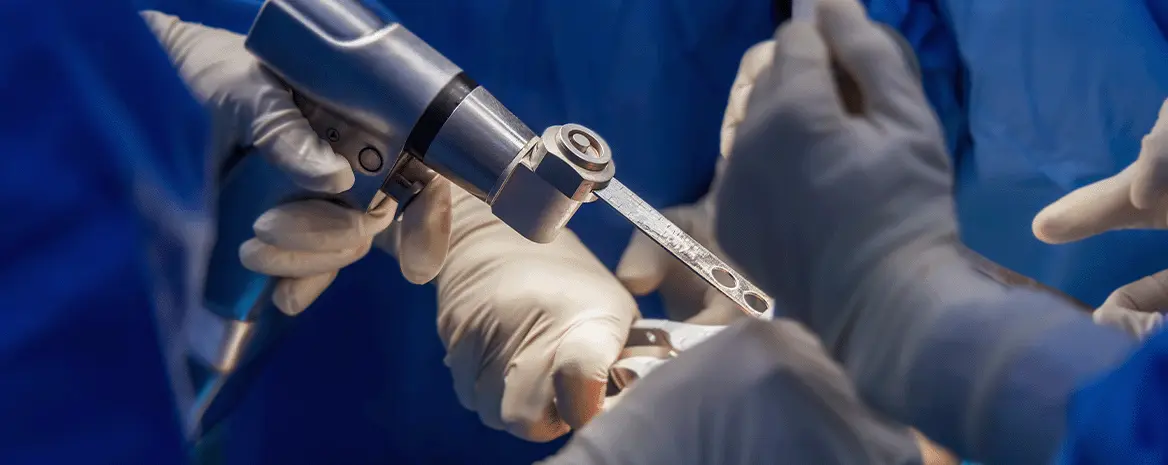How Much Does Knee Replacement Cost in India? Complete Guide to Procedure & Pricing

When knee pain becomes constant and starts to limit your daily life, knee replacement surgery may be the only solution for lasting relief. But with the high cost of the procedure, it can feel like an impossible option. That’s where India offers a budget-friendly alternative.
The knee replacement cost in India is a fraction of what you'd pay in many other countries, yet the quality of care remains on par with top hospitals worldwide. In this blog, we’ll break down the cost of knee replacement surgery in India and guide you through the steps to prepare for your procedure. Let’s get started!
How much does knee replacement treatment cost in India?
Getting a knee replacement in India means receiving top-notch medical care without the overwhelming price tag seen in Western countries. On average, the procedure costs around $6,600 in India, whereas in the U.S., you could be looking at a bill of $35,000 or more. With such a stark price difference, it’s no surprise that many patients choose India for their surgery.
The total expense also varies based on whether you need one or both knees replaced. A single knee replacement (unilateral) in India can cost anywhere from 1,50,000 to 6,00,000 INR (approximately $3,600 to $6,000). If both knees require surgery (bilateral knee replacement), the cost can fall between 3,50,000 and 15,00,000 INR (about $6,500 to $9,000).
These prices usually include hospital charges, surgeon’s fees, and standard implants, but you should also factor in additional expenses like travel and post-surgery care.
Cost comparison: India vs. other countries
Knee replacement in India already costs far less than in many Western countries, but just how much lower? Let’s take a look at the numbers:
| Country | Cost ($) |
|---|---|
| India | $3,600 - $9,000 |
| USA | $30,000 - $70,000 |
| UK | $20,000 - $40,000 |
| Canada | $15,000 - $30,000 |
With savings of up to 80%, India offers expert surgeons and top-tier medical care at a fraction of the cost.
Knee replacement surgery costs across major cities in India
While India offers affordable knee replacement surgery, prices can vary depending on the city. Major metro cities often have advanced hospitals and highly experienced surgeons, which can slightly increase costs. However, many hospitals across the country provide excellent care at reasonable prices.
Here’s a breakdown of what you might expect to pay in different cities:
| City | Unilateral Cost ($) | Bilateral Cost ($) |
|---|---|---|
| Delhi | $3,900 – $6,000 | $6,500 – $9,000 |
| Mumbai | $5,500 – $8,500 | $8,000 – $12,000 |
| Bangalore | $5,800 – $8,500 | $9,000 – $12,000 |
| Chennai | $5,200 – $8,000 | $8,000 – $11,000 |
| Hyderabad | $3,425 – $5,138 | $6,851 – $10,277 |
Detailed cost breakdown of knee replacement surgery in India
Now that you have an idea of the total cost, let’s break it down so you know exactly where your money goes.
-
Pre-Surgery Consultations & Diagnostic Tests: $100 – $500
-
Surgeon’s Fee: $750 – $2,250
-
Anesthesia Fee: $300 – $750
-
Implant Cost: $1,500 – $3,000 (varies based on brand and type)
-
Hospital Stay & Room Charges: $225 – $450 per day
-
Operation Theatre Charges: $750 – $1,500
-
Post-Surgery Physiotherapy: $450 – $900
-
Follow-Up Consultations & Medications: $100 – $300
Hidden costs to consider
For international patients, costs aren’t just limited to surgery. Expenses like travel and accommodation can also add up. It’s always a good idea to budget for these in advance to avoid any last-minute surprises. Have a personalized consultation with QCG to explore affordable knee replacement in India!
Factors affecting knee replacement cost in India
The price of knee replacement can vary based on several factors. Let’s break them down so you know what influences the cost and what to expect:
Type of knee replacement surgery
The kind of surgery you need plays a big role in determining the final cost. If most of your knee joint is damaged, total knee replacement (TKR) is usually the way to go. Since it involves replacing the entire joint, it naturally costs more.
But if only a portion of your knee is affected, partial knee replacement (PKR) might be an option. It’s a less invasive procedure, so it’s easier on both your recovery time and your wallet. However, not everyone is a candidate for PKR—your doctor will decide if it’s right for you.
Some patients also opt for robotic-assisted knee replacement, a cutting-edge technique that improves precision and speeds up recovery. However, this comes at a 20-30% higher price.
However, conventional knee replacement, performed manually by a skilled surgeon, remains a reliable and more affordable choice.
Surgeon’s experience & expertise
The more experienced the surgeon, the higher the cost—but for good reason. A well-experienced surgeon can ensure better results and minimize complications. If you’re traveling to India for surgery, it’s worth choosing a surgeon with a solid reputation, even if it costs a little more.
Type & quality of implant used
Implants are another big factor in pricing. India manufactures high-quality knee implants that cost less than imported ones. However, some people prefer imported implants from brands like Zimmer, Johnson & Johnson, or Stryker, believing they offer better longevity. Imported implants can cost nearly twice as much as Indian-made ones.
Moreover, a custom-fit implant can cost you more as compared to a standard implant. But many people find custom implants worth the extra cost for improved comfort and longevity.
Hospital and location
Where you get your surgery done makes a big difference. For example, private hospitals in India can be 148% more expensive than government hospitals. Public hospitals are significantly cheaper, but they often come with longer wait times and fewer amenities.
In addition, hospitals in metro cities like Delhi, Mumbai, and Bangalore often charge more due to their advanced facilities and highly experienced doctors. If you're looking for a more affordable option, hospitals in cities like Jaipur, Coimbatore, or Chandigarh offer excellent care at lower prices.
Pre- and post-operative care requirements
Knee replacement isn’t just about the surgery itself. There are additional costs before and after the procedure that you should factor in:
-
Pre-surgery tests and doctor visits – Blood tests, X-rays, MRIs, and consultations can add to the total expense.
-
Hospital stay – Some hospitals offer private and deluxe rooms, which cost more than shared rooms.
-
Physiotherapy – Many people need physiotherapy sessions for proper recovery, which can cost ₹500 – ₹2,500 ($6 – $30) per session.
-
Medications & follow-ups – Pain relief, antibiotics, and follow-up checkups can add ₹5,000 – ₹10,000 ($60 – $120) to your total cost.
How to plan your knee replacement surgery in India?
Planning knee replacement surgery abroad might seem overwhelming, but with the right approach, it can be a smooth process. Let’s break it down and help you prepare confidently.
Step 1: Choosing your surgeon and hospital
The first thing you’ll want to do is pick a qualified surgeon and a reliable hospital. This decision will affect your surgery’s success and the whole experience.
Here’s what to keep in mind:
-
Surgeon’s experience: Look for a surgeon who has performed many knee replacements, especially if they have expertise in robotic surgery.
-
Hospital quality: Make sure the hospital is accredited by NABH or JCI for world-class care.
-
Patient reviews: Read reviews from past patients, especially those from other countries, to get a sense of what to expect.
-
Treatment packages: Some hospitals offer all-inclusive packages that cover everything—consultations, surgery, stay, rehab, and even airport transfers.
Once you’ve found a good match, ask for a detailed cost estimate. Many hospitals offer free online consultations, so you can share your medical reports and get advice without leaving home. If you need help with this, Quality Care Global (QCG) can make the process easier by connecting you with top hospitals and helping with consultations.
Step 2: Medical visa process for international patients
If you’re coming from abroad, you’ll need a Medical Visa (M-Visa). It’s a simple process, but it’s better to start early.
Here’s how to apply:
-
Get a medical invitation: The hospital will provide a letter confirming your treatment plan.
-
Apply online or at an embassy: You can submit your application through India’s official website or your nearest embassy.
-
Submit documents: You’ll need your passport (valid for 6 months), passport-size photos, medical reports, and proof that you can cover your expenses.
-
Wait for approval: Visa processing usually takes 5-10 business days, but it’s smart to apply at least a month in advance for a smooth experience.
Some countries offer e-Medical Visas for faster processing. QCG can also help make the paperwork even easier.
Step 3: Planning your travel
Once your visa is approved, you can book your travel and get ready for surgery.
-
Book flights early: Arrive in India 3-5 days before your surgery to allow time for final tests and any last-minute preparations.
-
Accommodation: Many hospitals offer guesthouses or have hotel partnerships for international patients.
-
Pack essentials: Bring your medical records, loose clothing, slip-on shoes, and any mobility aids like a walker or cane if needed.
Step 4: Pre-surgery tests
Once you arrive, hospitals will conduct final medical tests, including:
-
Blood tests
-
X-rays/MRI scans
-
ECG (for heart health evaluation)
This step is for ensuring you’re fit for surgery and mentally prepared for the procedure.
Step 5: Undergoing surgery & hospital stay
The surgery itself takes 1.5 to 3 hours, and you’ll be under anesthesia. After surgery, you'll be monitored and then moved to your room for recovery.
You’ll likely stay in the hospital for 3-5 days for observation and early rehabilitation. The medical team will manage your pain and change dressings as needed. Within 24 hours, a physiotherapist will help you take your first steps.
Before discharge, you’ll get a care plan, medication schedule, and follow-up instructions. Many hospitals also offer airport drop-off services and home care.
Step 6: Post-surgery recovery and follow-up
Recovery typically takes 6-12 weeks, and physiotherapy can help regain strength and flexibility. Most patients need 4-6 weeks of therapy.
Your surgeon will schedule follow-up visits at:
-
2 weeks for stitch removal and a check-up
-
6 weeks for a progress review
-
3 months for a final recovery assessment
You’ll gradually return to your normal activities, using a cane or walker for the first 4-6 weeks. A balanced, healthy diet will also support your recovery process.
Ready to begin your knee replacement journey in India? Contact QCG today, and let us help make the process as smooth and simple as possible!
How successful is knee replacement surgery in India?
Knee replacement surgery in India is highly effective for most patients. Many people report a reduction in pain, better movement, and an overall improvement in their quality of life after the surgery.
In India, knee replacement surgeries are performed by skilled surgeons using advanced techniques and high-quality implants. As a result, most knee replacements last 15 to 20 years or even longer. Studies show the success rate for knee replacement is around 90-95% over 10 to 15 years.
Robotic-assisted knee replacement surgeries, which are increasingly popular in India, have shown even better outcomes. These procedures offer more precise implant placement, leading to fewer complications and higher patient satisfaction. So, if you're considering knee replacement, India offers a solid option with excellent long-term results.
Is India good for knee replacement?
Absolutely! India has become a top choice for knee replacement surgery, and for good reason. The country offers world-class medical care at a fraction of the cost you’d pay in many other countries. With internationally accredited hospitals and cutting-edge technology, you can trust you'll receive excellent treatment.
Indian surgeons, often internationally trained, perform thousands of knee replacements every year, making India a reliable choice for patients worldwide.
That being said, it’s important to do your research before making a decision. And if you need help along the way, QCG can help you navigate the entire process.

